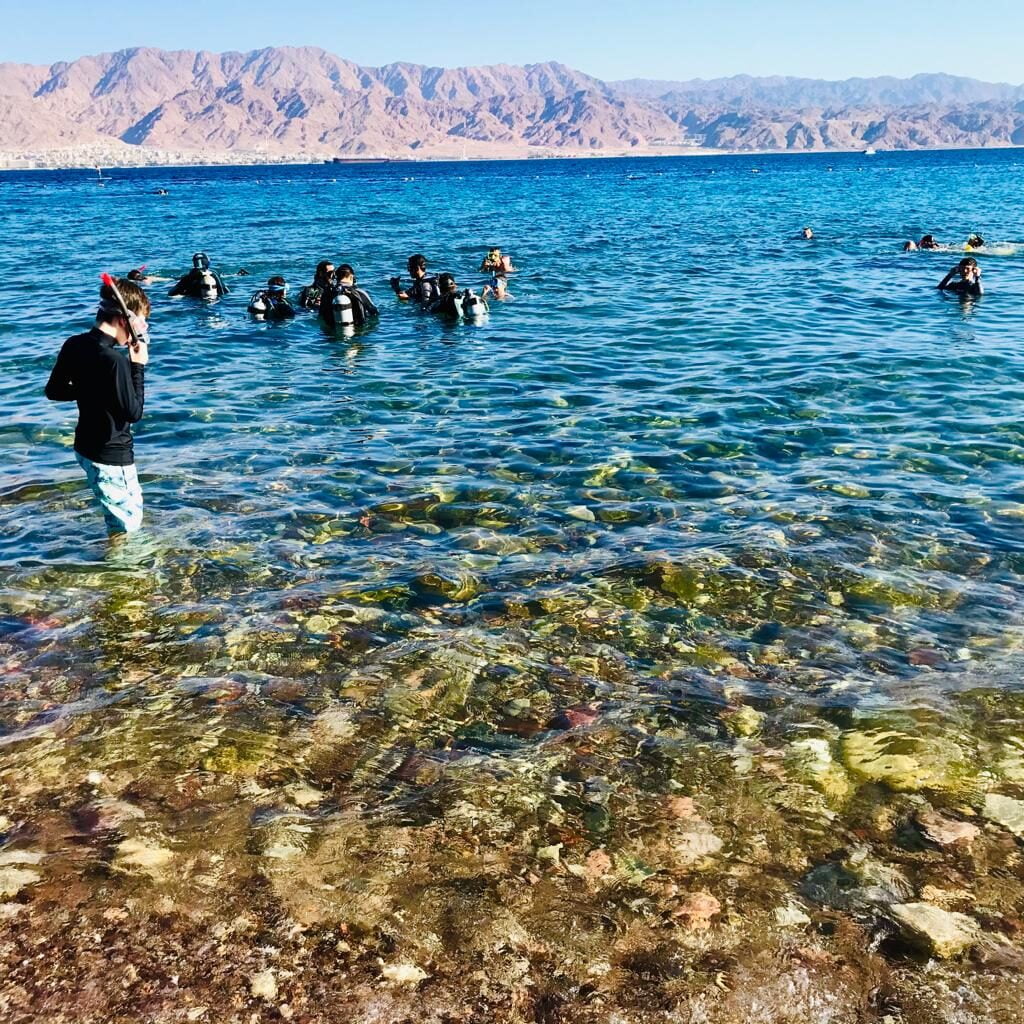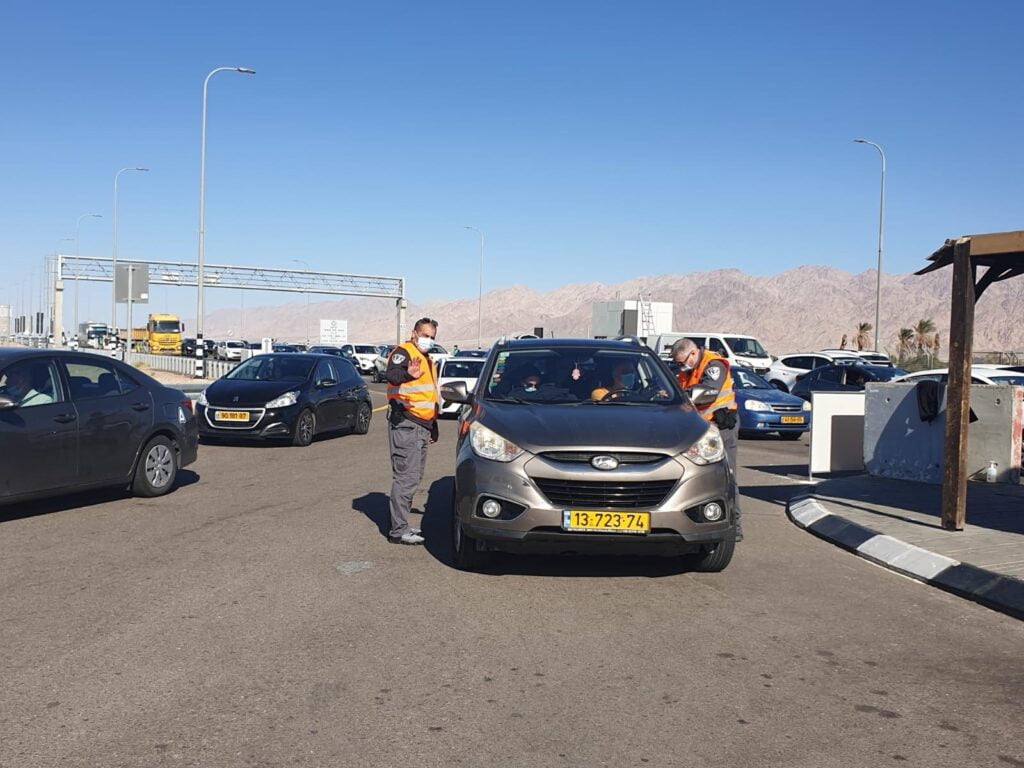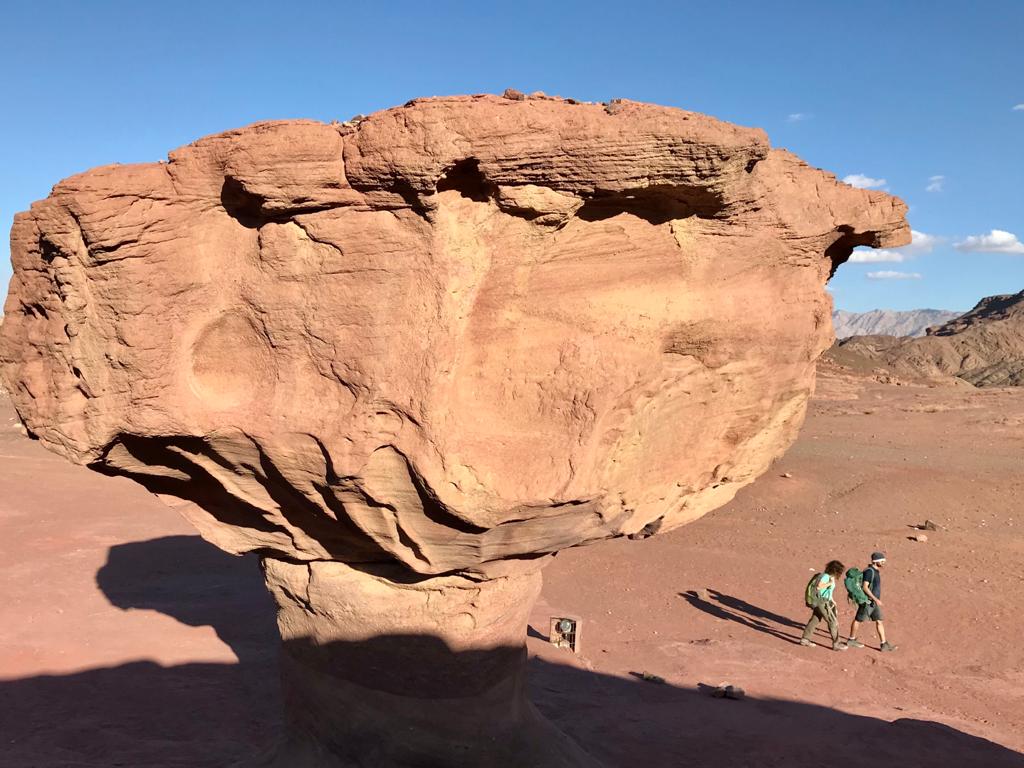With news that Eilat was opening up to domestic tourism, and with school still via Zoom, we decided to pack up and try the “work from anywhere” (WFA) trend with a four-day road trip heading south.
Since March and the first lockdown in Israel, we have pretty much stayed put within Tel Aviv’s city limits. Here and there, when regulations allowed, we popped out for a hike in nature or to visit family.
This staying-close-to-home is very unusual for us.
Before COVID-19, we were on the move whenever possible. We love to travel and traipse around the country whether it be camping or hiking, urban sightseeing or museum hopping, food-tasting DIY tours or extreme sporting activities.
SEE ALSO: Israeli Startup That Connects Travelers With Local Doctors Gears Up For A Post-Corona World
The travel itch is always present.
So, on November 18, when Eilat and the Dead Sea area opened to tourists as part of the government’s “tourist islands” designation, we started planning our first holiday-during-COVID-19.
The kids had long requested a visit to the country’s southernmost city – and now, with the youngest old enough to scuba dive – we decided a trip to the Red Sea was the place to go.
Israel’s ‘tourist islands’
“We must not underestimate the importance of mental health. We need to be able to take a break in safety,” President Reuven Rivlin said in a statement a day after the ‘tourist islands law’ designation went into effect.
The tourist islands law gives a green light to hotels and resorts of Eilat and certain parts of the Dead Sea region to open according to strict coronavirus regulations.

“I call on all Israelis who can afford it – take a holiday in Israel. Support our domestic tourism industry by going to Eilat and the Dead Sea! All within the restrictions and the requirements, of course. Cooperate with the public health authorities by getting checked before you come, keep your distance and wear a mask – even on holiday. And, of course, enjoy your break,” said the president.
Eilat’s economy relies on the tourist industry. The city was hit-hard during the country’s first lockdown in the spring and unemployment stood at some 70 percent. In the summer, Eilat opened to local tourism for a few months but again shut down with the rest of the country during the second lockdown in September and October.
City officials are now extra keen on keeping the city open – and mask-wearing and occupancy policies are enforced everywhere
To enter Eilat’s city limits, you need to show a negative COVID-19 test carried out no longer than 72 hours prior to entry. We ended up doing two tests in Tel Aviv – the results of the first test (negative) came back sooner than we expected.
There are also quick-result testing sites near Eilat. Kibbutz Yotvata has a 24-hour testing site. Another is meant to open at the Ramon airbase.
Over the first weekend of the city opening up to domestic tourists, officials turned away some 250 cars with people not having a valid COVID-19 test. Officials at the coronavirus checkpoints at the entrances to the city also found – and fined – three people with falsified documents, according to the Eilat Municipality spokesperson.
Sign up for our free weekly newsletter
Subscribe
“The opening of the city of Eilat undoubtedly helps the city’s economy and especially the mood of thousands of residents who found themselves unemployed for many months. As time goes on and as we demonstrate our health resilience thanks to an urban set of actions and especially thanks to the personal responsibility and self-discipline required of the residents and vacationers,” said Eilat Mayor Meir Yitzhak Halevy in a press statement.
“We will act with zero tolerance towards anyone who acts irresponsibly and thus harms all our efforts to preserve the city of Eilat, its economy and the health of its residents,” he added
Once in the city, there is a feeling of vacation in the air.
Not everything is open just yet – shopping malls remain closed and the main promenade’s bazaar is shut – but some strip malls are open (to enter them, you are often required to show your COVID-19 test results again) as are the city’s beautiful beaches, the scuba diving clubs, amusement park rides along the promenade, spas, and restaurants (outdoor seating only).
“I am very happy to see the city come back to life and be vibrant after being sad and desolate for two months,” said, Eli Lankri, Eilat deputy mayor, in a press statement.
Eilat officials hope to prove that the “tourist island” status can work for international travel destinations, too.
Within hours of the news that Eilat was open to tourism again, Israelis booked rooms for some R&R in the south. Hotel occupancy in the first week stood at 65-70 percent, according to the municipality’s spokesperson.

“We welcome our guests and hope that they desperately need freedom and ventilation just as we need the opportunity to host them,” said Eilat Hotel Association chairperson Lior Mucznik.
And just outside Eilat’s city limits are dozens of hiking trails. When we visited, we had to organize our hike along Wadi Gishron trail for the day we headed back to Tel Aviv. If we had left city limits, we knew we would not be allowed back in.
SEE ALSO: Israeli Hotels, Eateries Win Top Tripadvisor Travelers’ Choice Awards
That has changed since our visit. A spokesperson for the municipality says as issues come up, the city works to make arrangements – noting that the new normal often presents new challenges for the tourism arena. The spokesperson says those who would like to hike nearby – whether at Timna Park or along the steep cliffs of the Negev Desert – must simply notify the checkpoints on their way out of the city for the day and will be given a special re-entry pass.

And even though walking around with a mask on, keeping a distance, waiting in line to enter some stores or restaurants is a different kind of vacation, it is still so good to get out of town and enjoy a change of scenery.
Travel in the time of coronavirus is possible.
Viva Sarah Press is a journalist and speaker. She writes and talks about the creativity and innovation taking place in Israel and beyond. www.vivaspress.com
Related posts

Rehabilitation Nation: Israeli Innovation On Road To Healing

Israeli High-Tech Sector 'Still Good' Despite Year Of War




Facebook comments